The defence of Paros’ Cycladic identity cannot be achieved without citizen mobilisation and public commitment.
The economic development brought about by the boom in tourism has a dual dimension.
On the one hand, it has generated significant additional income, enabling greater consideration to be given to the material and service needs of the population. The shift in the population towards tourism-related activities has negatively impacted traditional sectors like agriculture and fishing. Additionally, jobs in tourism—such as construction, catering, and hotel services—have attracted both Greek nationals and foreigners to the island.
On the other hand, while this development follows a strict and simple market logic, it also has significant negative effects: overbuilding, road congestion, excessive occupation of public spaces, more complicated waste and wastewater management, reduction of natural spaces and destruction of the traditional landscape, etc. Initially, these negative aspects were underestimated or even neglected, partly because their impact was limited to the short tourist season.
However, tourism continued to grow, the tourist season lengthened, and some former visitors bought houses and settled on the island on a more permanent basis. The same is true of tourism ‘workers’, some of whom have settled on the island.
As a result, the negative aspects of intensive tourism have been better understood as irreversible and have given rise to:
- initially, critical reflections in favour of sustainable development that respects the Cycladic identity of Paros,
- also, powerful citizen movements, such as the ‘Paros Citizens’ Movement’, which highlighted the extensive, even illegal, occupation of beaches – by beach beds and umbrellas in public spaces – which quickly spread throughout Greece,
- lastly, citizens are demanding an improvement in the legal framework for land use and its proper management by the relevant authorities.
Overbuilding, sustainable development and the importance of the island’s Cycladic identity are now better understood by society. These issues have entered the mainstream political arena, particularly at the electoral level. This is a positive development, but it is still in its infancy.
To be sustainable, this development must continue to be based on awareness and citizen mobilisation. Hence the importance of continuing the debate on these issues, particularly those concerning the limits to be placed on the commercial development of society in order to defend the common good.
From this point of view, the citizen movement has not exhausted the subject, far from it.
What about the footpaths, so important for promoting quality tourism, which are being blocked by illegal barriers?
What about the space allocated to pavements, which is not planned and is sometimes occupied by ad hoc constructions?
What about public squares and roads, which are illegally occupied by various activities?
But beyond these questions lies the main one. How can we convince people that sustainable development, rooted in the Cycladic identity, is essential for sustainable tourism and the well-being of the community? This is not only a necessary approach, but also the only way to continuously improve the satisfaction of social needs.

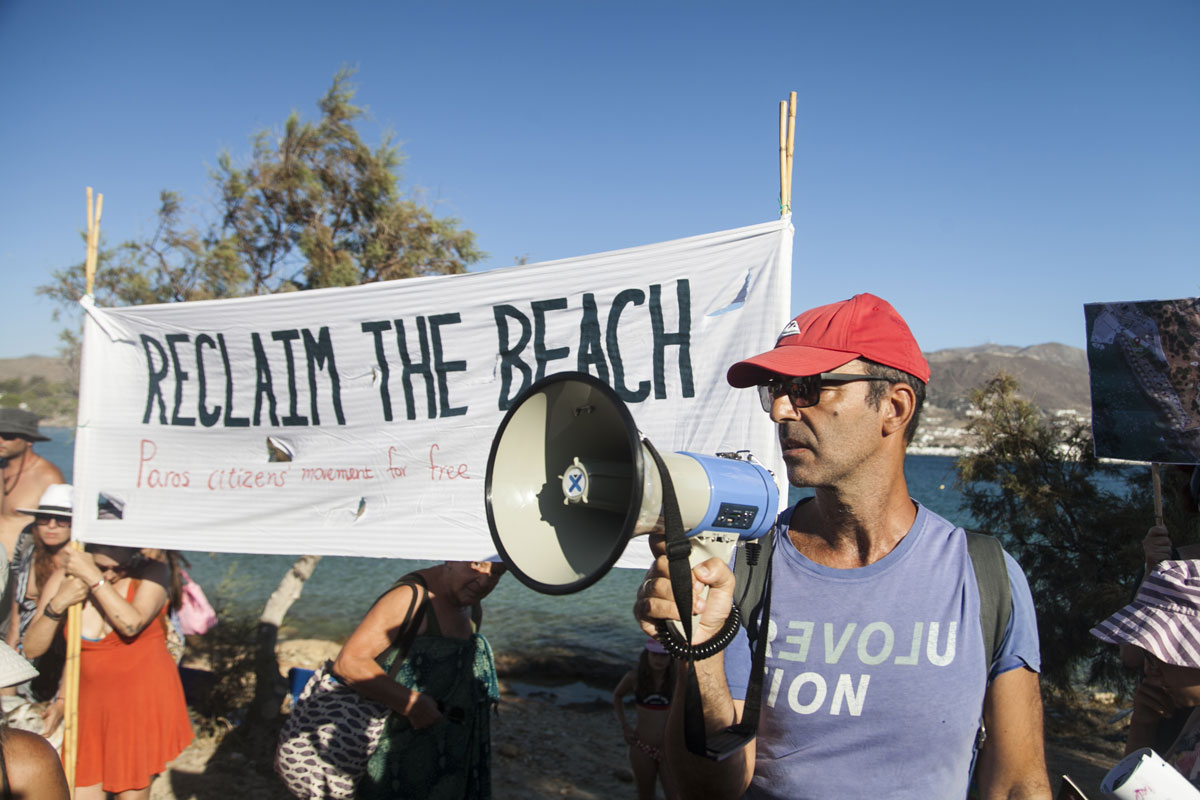
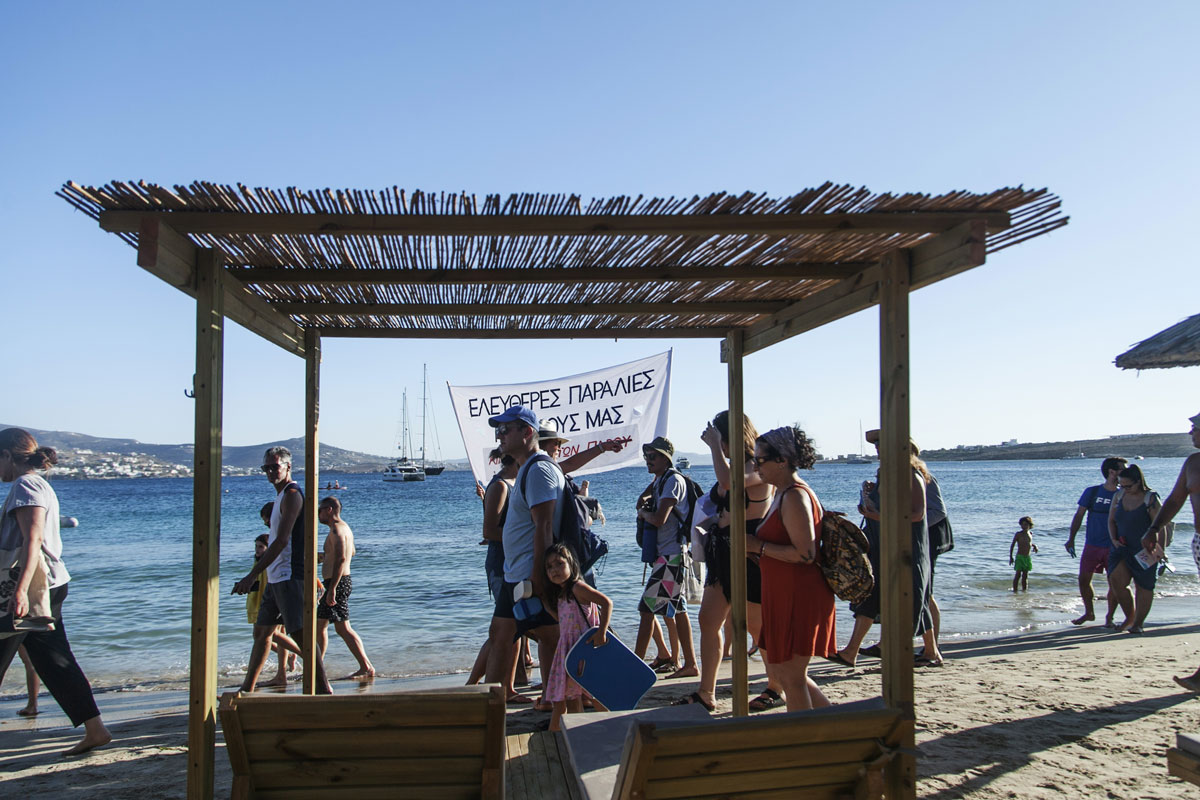
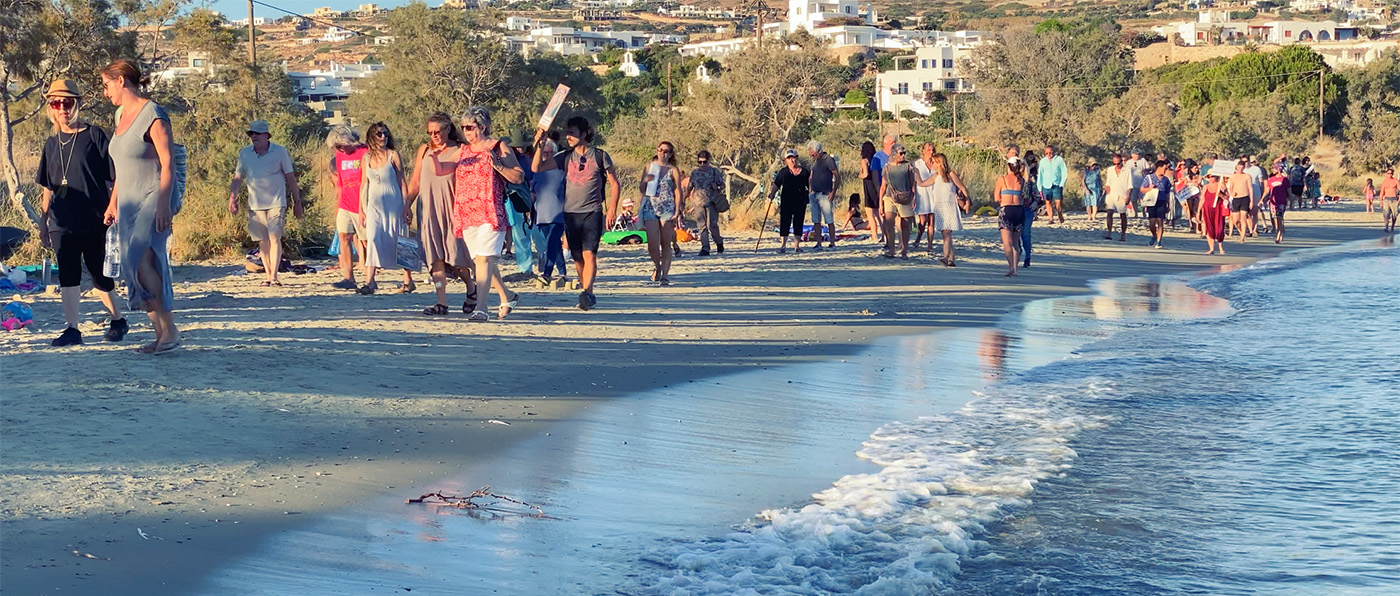
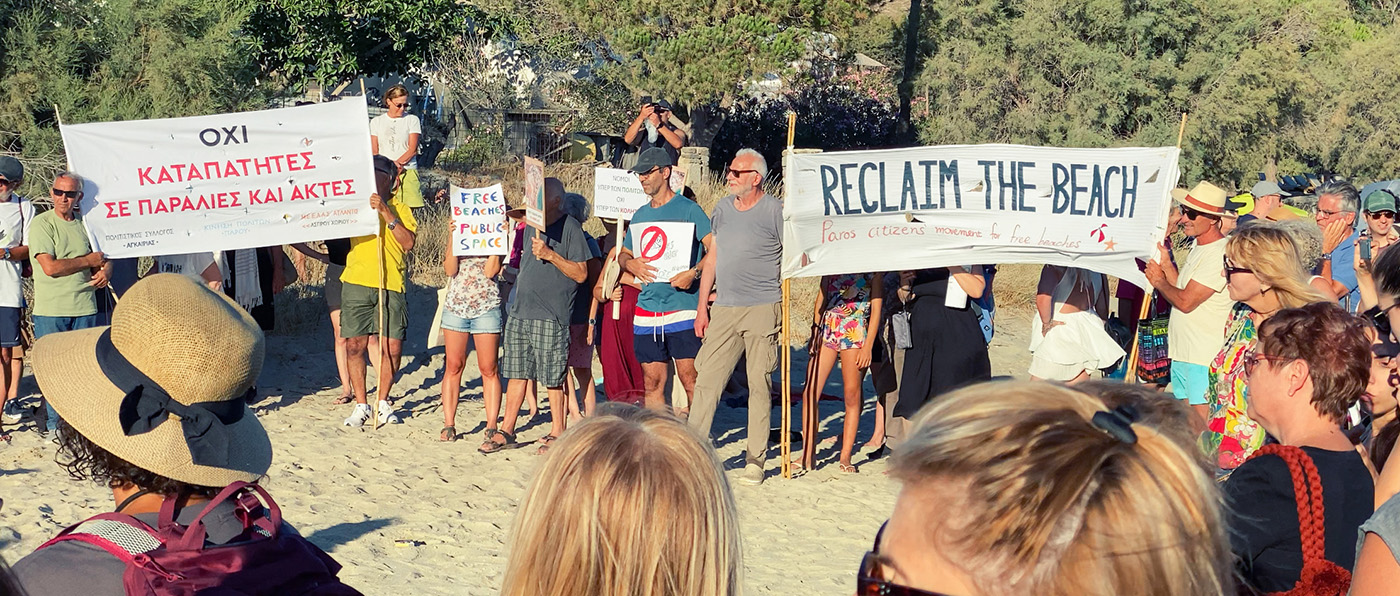
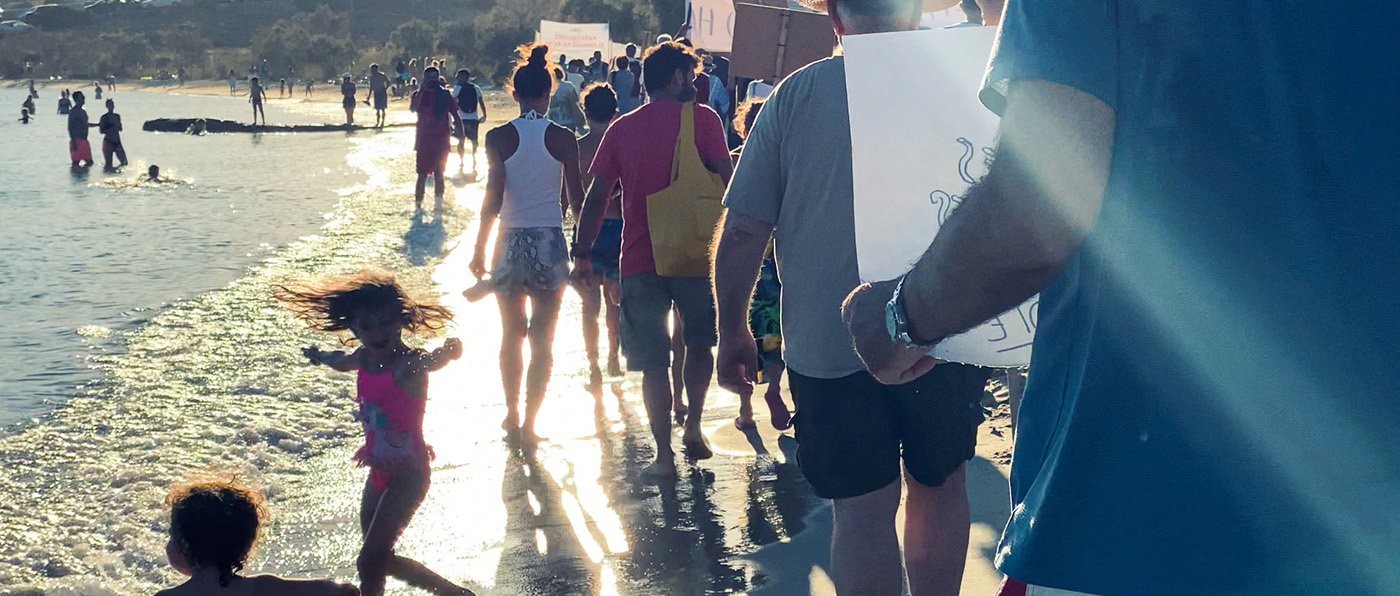
Good work!!!